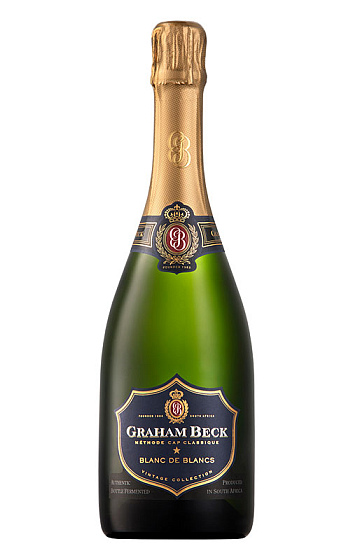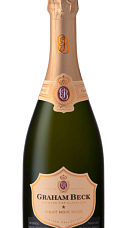Graham Beck Blanc de Blancs 2018
Descrizione
Il Chardonnay con cui è fatto questo spumante cresce su terreni con un sacco di calcare, che gli dà un'acidità naturale fantastica. Per garantire la massima qualità, dopo la fermentazione il vino viene mescolato con diversi Chardonnay delle migliori parcelle. Al palato spiccano la complessità e una mineralità unica
Dettagli del prodotto
Degustazione
Vigna e preparazione
Recensioni degli esperti
The 2018 Blanc de Blancs offers notions of sweet and tart aromas of kiwi fruit and dusty citrus blossoms, opening with a fresh, citrusy nose with hints of lees and green apples. Light to medium-bodied and with 12% alcohol, the wine draws me in repeatedly and is the clear winner of this year's lineup. At this price, buy the entire case. Just under 100,000 bottles were produced after resting on the lees for at least 42 months.
Freshly squeezed lemons, sliced apples, acacia, bread crust and yeasty undertones. Tangy and sharp acidity cutting through the fresh and crunchy palate. Citrusy and toned with a chalky backbone, fine bubbles and vivid finish. Drink now.
Half of this classy blanc de blancs was fermented in 10-year-old small barrels, the other half in stainless steel. Malolactic fermentation was avoided and the wines were blended to then spend four years on lees. The nose is subtle and opens up slowly into notions of ripe Amalfi lemon. The palate is slender, bright and strikes an immediate balance, underlined by a creamy, fine, lemony mousse, complemented by exquisite zestiness. As the wine warms up, there is almost a tangerine overtone. Lovely.






Annate: 2018 2017 2014
sin duda un espumoso de categoria gran chardoney
Un espumuso con mucho cuerpo, burbujas bien integradas.
4
Para mi gusto algo corto de acidez y la burbuja tosca, pero en general da lo que se espera, bien. RCP no la veo especialmente buena.